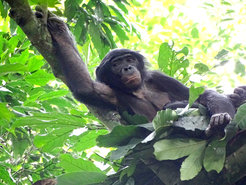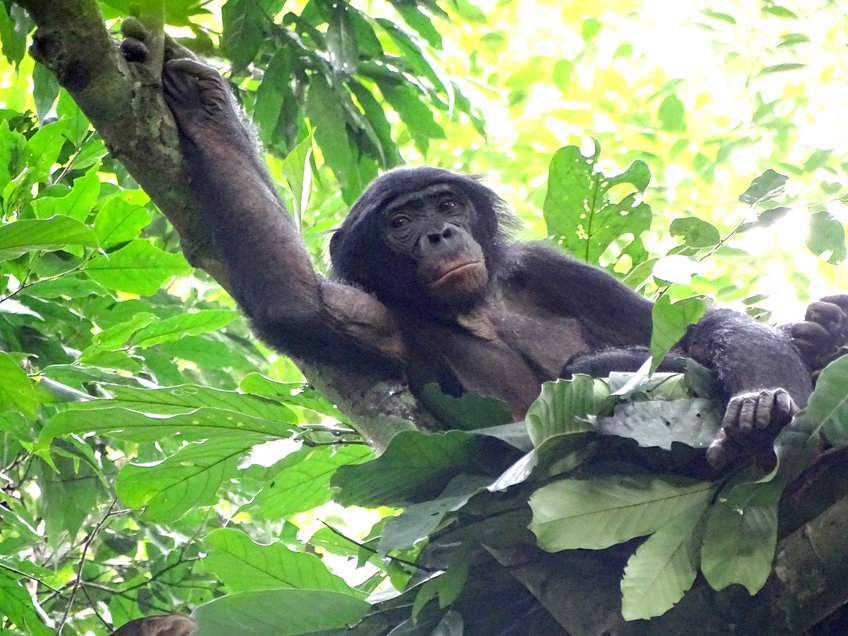Bonobo Behavioral Ecology

LuiKotale Bonobo Project
Bonobos (Pan paniscus) exhibit a number of traits that are unusual not only for non-human primates but also for social mammals in general. Some of their striking peculiarities are of particular interest for research because they challenge biological paradigms. For example:
- Cooperation and bonding among females, despite female exogamy and thus a low degree of relatedness
- A lack of cooperation among males despite male philopatry
- Dominance relations, with females being dominant over males or co-dominant with males, despite male biased sexual-dimorphism in body mass and canine size
- Mating behaviour, with a broad spectrum of sexual interactions including social sex, and sex independent of fertile cycles
- Aggression, with intra- and inter-group conflicts solved rather moderately.
Increasingly, research suggests ecological factors are the primary drivers of these behaviours.
Since 2002, we have collected data at our field site LuiKotale, Democratic Republic of the Congo (DRC), where we integrate behavioural observations with physiological, genetic, and ecological data in collaboration with partners within and outside the DRC.
Our research group focuses on bonobo behavioural ecology, taking into account individual life histories and social relationships - both within and across groups. By examining both ecological and social drivers of bonobo behaviour, we also uncover interspecific relationships that reveal how bonobos and other sympatric species - from ungulates, over other primates to felids- are embedded in a complex ecosystem of predators, prey, and competitors.






